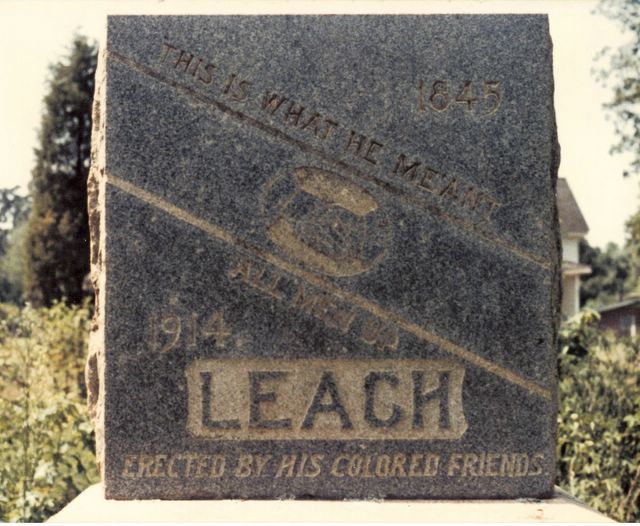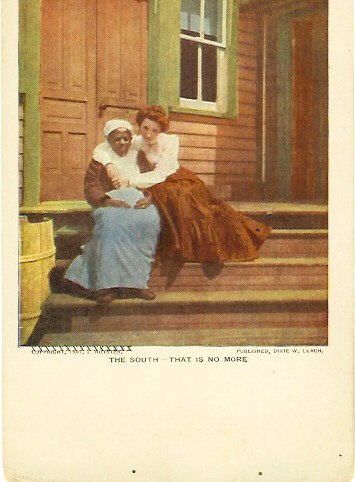
Many in the North understood what fueled the rise of clandestine resistance to postwar Northern tyranny. “The Nation” magazine commented on Klan activity in South Carolina in 1870 with: “this is all horrible, but we have no hesitation in saying that it is not an unnatural consequence of the caricature on government which has been kept up in that State for the last 4 years.” The Klan was a predictable result of Southerners being disarmed and at the mercy of political opportunists who were plundering their States and turning black freedmen against them. Had the South been left to solve the riddle of slavery in their midst peacefully as the North had done, no war, no million dead, and no Klan would have resulted.
Bernhard Thuersam, www.Circa1865.com The Great American Political Divide
Resisting the Seditious Influence of Carpetbaggers
“While there is little doubt that [General John B. Gordon] became involved with the Ku Klux Klan – he was often referred to as the Grand Dragon of the Klan in Georgia – it is virtually impossible to penetrate the shroud of secrecy surrounding his association with it. Most of what is known about his role in the organization is contained in his testimony before a joint select congressional committee in July, 1871.
When asked directly what he knew of illegal organizations known as the Ku Klux, Gordon denied all knowledge of any combination by that name, except what he had read in papers or heard secondhand. He did, however, reveal his association with a secret organization whose sole purpose, he maintained, was the preservation of peace.
Gordon stated that when approached by some of Georgia’s most respected men, he joined this “brotherhood of property-holders, the peaceable, law-abiding citizens of the State, for self-protection” from the threat posed by the black population that he thought was largely ignorant.
Although he asserted that he had personally “never entertained toward the Negro race anything but the very kindliest feelings,” Gordon again explained that it was the influx of “carpet-baggers” and their seditious influence upon the blacks that forced whites in the South to act.
The introduction of this “class of men whose object seemed to be to stir up strife among the people, and to create animosity,” in his opinion, disrupted the normally harmonious relations between the races.
Organizing blacks into Union or Loyal Leagues, these unprincipled whites attempted to convince the former slaves that their interests “were in direct conflict with those of the white men of the South.” Gordon also blamed these “carpet-baggers” for reinforcing the commonly held notion that all of the lands in the South really belonged to the freedmen, and not to the whites.
Fearful that such incendiary preachings might well incite blacks to violence, native white Southerners had little choice but to act on their own, Gordon contended.
Thus they formed what he called a “peace police organization” to protect themselves, their families, and their property from outrage. “We would have preferred death,” he asserted, “rather than to have submitted to what we supposed was coming upon us.”
Even though Gordon styled his association “purely a peace police – “a law-abiding concern” – he explained that native whites felt compelled to remain in the shadows because any attempt at public organization would be construed by the Federal authorities as a move antagonistic to the government.
Gordon even asserted that his organization would gladly have united with Federal troops to quell racial disorders, but, as he pointed out, “we apprehended that the sympathy of the entire Government would be against us. “We did not want to have in our State a war of the races – to have property and our lives destroyed. We feared the peril to our women and children.”
(John Brown Gordon, Ralph Lowell Eckert, LSU Press, 1989, pp. 145-147)
*****************************
 |
*Leach cousins in Pittsboro. The second person to the left of Dixie is Cousin Dixie who was named after her Aunt Dixie who was named after my Great Aunt Dixie below.

The Attack On Fort Stedman
*General Gordon promised the men a gold medal and 30 days leave if they
accomplished their task and many years after the War my *great
grandfather (Monument at the top) wrote General Gordon, who was then governor of Georgia about
this incident. They exchanged several letters which I have framed.

Every time I see that photo Brock I am amazed at cousin Dixie's long legs. As someone who is 5'3", I am jealous, lol.
ReplyDeleteShe's barely 5'2"....?
DeleteI'm talking about the woman second to the left from your Dixie. If she's only 5'2" she is all legs. ;-)
ReplyDeleteOh, Cousin Dixie, now it makes sense. :)
Delete